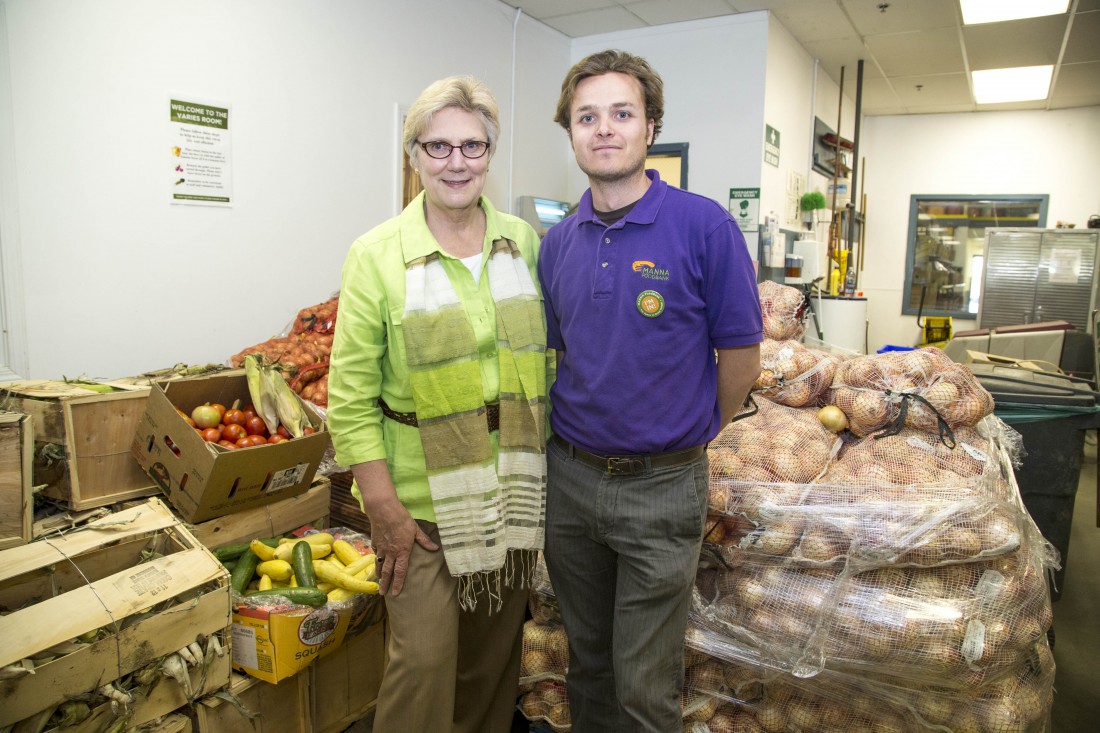Food insecurity is on the rise in WNC
Newly released data pulled from Feeding America’s 2012 Map the Meal Gap study shows a 2 percent increase in food insecurity in Western North Carolina. In that year, the study found, 15.3 percent of the region’s people lacked consistent access to enough food to meet their nutritional needs, up from 14.9 percent in 2011.
“It’s not a dramatic increase, but the disconcerting challenge is that it’s not getting better,” says Cindy Threlkeld, executive director of MANNA FoodBank.
What’s most alarming, she notes, is the persistently high rates of food insecurity among children. More than one in four children in Western North Carolina (28.9 percent) lacks reliable access to three square meals a day, the study found.
“Childhood food insecurity is the piece of it that’s the most concerning,” says Threlkeld. “That has an impact on the future of our region. You’re looking at their cognitive, physical development. … It has an incredible impact on the well-being of our children. The fact that we’re not making a dent in that should be a wake-up call.”
In six of the 16 counties MANNA serves, the childhood food insecurity rate is over 30 percent (see chart).
“Having children creates additional financial obligations within a household,” says Max Gruber, the nonprofit’s volunteer coordinator. “Due to these additional obligations, food insecurity is higher in households with children. A household can have an income level well above the poverty line but still struggle with food insecurity, because there are several mouths to feed.”
The Map the Meal Gap study takes into account a multitude of factors, says Gruber, including unemployment, food cost and median income. And even though the economy is improving and WNC’s unemployment rate is dropping, the area’s rate of food insecurity won’t necessarily decline, Gruber explains.
“If the recovery brings in jobs that aren’t living-wage, I wouldn’t see the [food insecurity rate] getting better.”
The Map the Meal Gap project, which began in 2011, is important for organizations like MANNA, says Threlkeld, because it’s “looking at the bigger picture.” Often, such groups have to rely on anecdotal information gleaned from church pantries and individuals in attempting to assess the extent of food insecurity in their area and whom it’s affecting.
For the past few months, Elijah Banks, a student at A.C. Reynolds High School, has volunteered at MANNA almost every Saturday. “I like helping out as much as I can, even in small ways,” the 17-year-old says. And with 25.9 percent of Buncombe County children facing food insecurity, there’s a good chance that some of Banks’ classmates lack continuous access to food that meets their basic needs.
“I don’t think [food insecurity] is something we talk about openly,” he notes. “But I’m sure there are kids who don’t know where their next meal is coming from. If people aren’t openly asking for help, how can they get it?”
At the same time, continues Banks, lacking access to food can make kids feel ashamed. “I wouldn’t want to tell anybody,” he says.
Pride can also be a barrier to seeking assistance, says Gruber. “It’s not something that one wears on their sleeve; it’s hidden behind doors. It takes a lot to ask for help.”
And despite the prevailing stereotypes, he points out, not all hungry people are homeless. “There are many faces of hunger. Becoming involved with one of our 211 partner agencies would give people access to seeing what hunger actually looks like.”
Cuts in SNAP (food stamp) funding, low-paying jobs and rising food costs all contribute to the area’s high rates of food insecurity, which can affect anyone, says Gruber. “It’s a difficult issue; it takes attention from different angles. It requires the entire community to be on board and work toward a solution.”
Whether it’s volunteering at a food bank or soup kitchen, advocating for legislation or supporting farmers markets, says Threlkeld, food insecurity needs to be addressed at every level of society.
“The issues of hunger are very closely tied to issues of poverty,” she explains. “It’s a very complex problem. We need to take apart the pieces so we can understand them and put together a community that reflects our values. We have to do something about it collectively.”




Elijah Banks, a past student at A.C. Reynolds High School, has stolen lottery funds meant for a child in a wheelchair. Boooo!